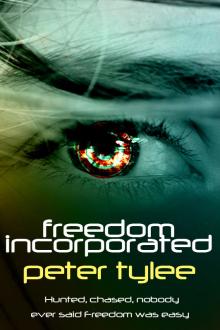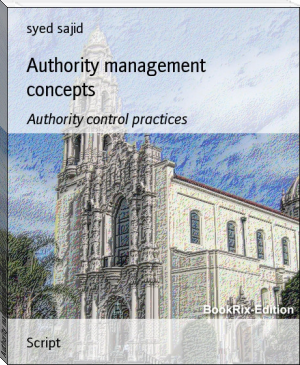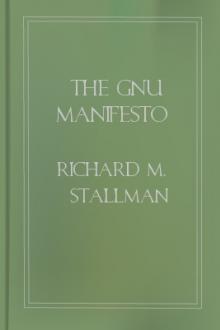Freedom Incorporated, Peter Tylee [literature books to read TXT] 📗

- Author: Peter Tylee
- Performer: -
Book online «Freedom Incorporated, Peter Tylee [literature books to read TXT] 📗». Author Peter Tylee
Dan sighed and ran a hand over his face before pushing back from the table and striding confidently towards Christopher’s counter. “G’day Chuck, how’re things?”
He smiled warmly. “Hey Dan-the-man-from-Afghanistan, not too bad. You?”
“I’ve seen better days,” Dan admitted sombrely. “Say, what kind of freakazoid hours are you working here?”
“Yeah, I know, it’s my turn for night shift.” He sighed and blinked sleep from his eyes. “A ten day rotation every three months. It sucks, but it comes with the job.”
“When do you get off?” Dan asked.
He checked his watch in the hope that time was passing quickly. “Not until the morning guys get here, around eight. But after my rotation I get a five day break so it’s not too bad.”
Dan grunted. “Could’ve fooled me.”
“So where’re you off to this time?” Christopher asked, indicating he should step closer for the mandatory scan.
“Actually, I was wondering if you could do me a favour,” Dan replied vaguely.
“Sure, name it.” Christopher didn’t even flinch. They’d developed a friendship over the past few months. Or, at the very least, he’d call Dan a close acquaintance. He passed through the terminal every few days and always had time for a chat. Recently Chuck had joked that he would have a ‘most-frequent traveller’ award printed and framed especially for Dan. And a month ago they’d gone for beers and watched the rugby final at the local watering hole.
“It’s not entirely legal,” Dan said, testing the waters. He nervously wondered whether their friendship was strong enough to support the tremendous weight he was about to place upon it.
“Whoa there big boy.” Christopher held up his hands. “Don’t ask me to do something that’ll get me fired. I thought you were going to ask me to water your plants or something.” He paused, gauging Dan’s reaction. There was none. His stoic mask only betrayed his discipline. Curiosity eventually got the better of him. “What is it?”
It was Dan’s turn to study Chuck. Trust was a luxury he didn’t have, so he had to be very careful divulging information. “Somebody I know is in a lot of trouble.” Dan started slowly, cautiously choosing every word. “For now, just tell me what has to happen to let someone pass on a fake chip.”
Chuck huffed. “It can’t be done.”
“You’ve never looked the other way?” Dan asked, angered beneath his calm surface. Since when did you become so sanctimonious?
“Shh!” he hushed. “Not so bloody loud mate.”
“You won’t help?” Dan asked flatly.
“I didn’t say that,” Christopher replied slyly. “What’ve you gone and gotten yourself mixed up in?”
“If I’m alive in a week I’ll tell you over a beer.”
“It’s that bad, huh?”
Dan nodded solemnly. “Yeah, it’s that bad.”
“Must be time you considered a new profession then.” He smiled. “We’ve got an opening if you’re interested. I could talk to the boss?”
“Pass.”
Christopher sighed. “You don’t know what you’re missing.” He would’ve liked to have someone interesting to share the monotonous night shifts with. The others were okay, but they were into computer games and were always talking about sorceresses, paladins, swords and armour. It drove him crazy. “Just so I’m clear, we’re talking about you, aren’t we?”
Dan nodded slowly, wondering whether Chuck would blow his plans asunder. He had one hand in his pocket, ready to press ‘next’ and revert to his legitimate identity if things turned sour.
“And I assume you’ve got a good reason for wanting your name off the records?”
Dan nodded again, more warily than ever.
“Come on then, let’s get this over with.” He offered his scanner and Dan stepped forward, brushing past the compact handheld device, which looked similar to a barcode-reader. It communicated briefly with the chip in his pocket and fed the relevant details to Christopher’s monitor. Meanwhile, Dan lined up his weaponry for tagging. Christopher watched as each piece of Dan’s arsenal emerged from the folds of his clothing. He uttered an oath under his breath, something that Dan couldn’t quite catch.
“Very well Mr Kennedy,” Chuck intoned formally. “Have a pleasant trip abroad.”
“Thanks Chucky, I owe you one.” Dan holstered his weapons.
“No, you owe me two. Kegs. No, make it two bottles of scotch. The good stuff.” Christopher smiled. “Just make sure you bring your ass back alive so I can collect, you hear?”
“Loud and clear.” Dan walked away before a queue banked up behind him. It was a busy time of night, the last minute rush before most Australians wanted to be home in front of their televisions or making love to their partners.
He looked over his shoulder on his way to the portals, reassured to see Christopher wasn’t making an emergency call to his supervisor and requesting police involvement. So Dan joined the short queue at the nearest international portal. Several large signs requested that travellers check their destination codes before joining a queue. It was annoying when somebody in front reached the portal and realised they didn’t know their destination code. Fifty dedicated code-terminals indexed the codes for all international destinations, but Dan didn’t need them. When he reached the front of queue, he stepped inside the white circle and he entered the code he’d thoroughly memorised.
The portals were impeccably hygienic, cleaned at regular intervals to PortaNet specifications. They looked like large tubes. Users stepped inside, made sure they were within the white safety circle, and dialled the destination code on the provided panel. There was an identical panel on the outside of the tube so that a second person could operate the portal on behalf of the traveller. The elderly and ‘special’ members of the community had been so dumbfounded by PortaNet’s invention that engineers had added the extra panel to circumvent the problem of training the untrainable. The company was already spending billions on public education; they’d simply considered some people too slow-witted to comprehend the new technology.
Dan had only a vague idea how portals worked, but he’d always thought the process lacked flare. There was no white flash, no sparks, and no melodramatic countdown, just a pop of changing air pressure.
A gust of cold North American air slammed his face when his vision shifted and the customary tickle in his lungs made him cough. He stepped out of the tube, thumped a fist to his chest to ease the discomfort, and headed toward United States Immigration. I hope this goes smoothly. American immigration was a lot larger than Australian Immigration so he didn’t know anybody well enough to cause a problem. I hope. But since America used a two-tier system, he had two counters to pass: immigration and customs. He gulped in anticipation.
But twenty minutes later he’d navigated the chaos of travellers and was standing in the chill of the North American autumn, gazing at UniForce headquarters. A dire hatred consumed his inner thoughts and he was prepared to tear the jugular from Esteban’s throat if he had half a chance. One year ago he wouldn’t have believed himself capable of transforming into a bloodlusting killer. Yet there he stood, comfortable with the thought of bereaving Esteban’s family.
He watched for security and coldly calculated his best opportunity to enter the building. He wasn’t sure what he’d achieve at 2:30 on Saturday morning, but he wasn’t content to do nothing. Jen’s time was running out and if there were even the slimmest possibility that he could save her, he’d keep trying.
Something in there will help me find Esteban… and Jen. He had to believe it or he’d lose what remained of his fragile sanity. A digital scope, no bigger than a pen, helped him peer through the night. He was squatting in a nature strip that ran the length of the grime-smattered street. Massive buildings loomed on all sides and he couldn’t help thinking it was unwise to tempt gravity so excessively. Human engineering was good, but nature could swat once and splatter the buildings like pimples. It would only take one decent earthquake. He didn’t believe the rhetoric fed to the public about earthquake predictability, nor could he swallow the commercials he’d seen for the anti-vibration systems installed in modern skyscrapers. It simply wasn’t clever to build them so enormous, especially when portal technology made the logistics of transportation so easy.
The concrete monstrosities spewed fluorescent light as if electricity was free and the light pollution was so bad that, despite zero cloud cover, Dan couldn’t see a single star. Using a portal was out of the question; security locked them down at night. Only a small subset of authorised microchips could portal in, and security monitored that activity closely. But Dan had never navigated through UniForce headquarters on foot and he screwed his eyes tight trying to remember on which floor he’d find the management offices.
He shivered from cold and praised his thick coat.
Standard patrols guarded the building’s perimeter, a few men at most. Inside there would be more, perhaps 50 - far more than Dan could handle alone. He wouldn’t want to assault the building even if he had a platoon as backup. UniForce guards were well armed and portal technology ensured they could react quickly to trouble. That leaves stealth. He chewed his lower lip, picking his moment. When a host of factors had aligned in his mind, he stood, ignoring the discomfort when his knees cracked in protest. Then streaked across the road and darted into UniForce territory.
It was easier than he’d thought. Deep down he’d suspected he would need to eliminate three or four innocent security guards, and he’d been psyching himself up for that probability. But he reached the opaque glass wall without opposition and pressed his shoulder blades against it, wincing when pain jolted from his wound. The bump stretched his skin and tugged his sutures.
Dan gritted his teeth. It’d been a long time since he’d broken into a high-security building. But, although he was nervous, the necessary skills came back to him. At one time well developed, his unique skills would probably stay with him for life. They hibernated until he reactivated them in times of need - like now.
Tonight he was thankful for his past.
He extracted a knife-like instrument and began cutting a manhole-sized block from the wall. The glass was only four centimetres thick, but the manufacturer had cured it with chemicals that had modified the quartz’s molecular structure, making it a thousand times stronger than a normal pane of glass. Nanoscopic wires wove through the fabric, supplying the digital information the glass needed to switch between transparent and opaque states. Dan’s laser-class instrument cut through it all, slicing it as neatly as a katana would slice silk. It fired an intense beam of radiation, focused by a series of nano-lenses into a shaft that was five nanometres thick. He was finished in less than twenty seconds and pushed the panel clear, cringing when it clanked noisily to the tile floor. He then dove through the hole and replaced the disk, lining it flush with the remainder of the wall. His laser cutter was so fine that its incision was invisible to the naked eye.
Dan berated himself for holding his breath. Stupid… Now, where am I? It was hard to see in the dark and he stumbled forward with arms outstretched, blindly hoping he wouldn’t trip over anything. What would they put on the ground floor? Mailroom? Storage space? The answer came a few moments later when he kicked over a mop and bucket, spewing a brackish brew of hair-infested water over the floor with an almighty clamour. The janitor’s closet, of course.
By chance, his hand blundered into the light switch, but he refused to cave in to his desire for illumination. He didn’t want to do anything that would attract attention and he was already disappointed





Comments (0)